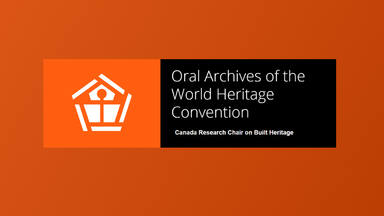Interview
Seiichi Kondo
World Heritage Convention
Seiichi Kondo is a Japanese diplomat and senior public servant. On his graduation from the Department of Liberal Arts and Graduate School for Law and Politics at the University of Tokyo, he joined the Ministry of Foreign Affairs in 1972.
As the first director-general of the Department of Public Diplomacy, he drew up Japan's new public diplomacy strategy. In his diplomatic role, following a stint at the Embassy of Japan in Washington, he served as Ambassador and Permanent Delegate of Japan to UNESCO (2006-2008) and Ambassador to Denmark (2008-2010). On his return to Japan, he became Commissioner of the Agency for Cultural Affairs (2010-2013). When he left the public service, he became President of the Kondo Institute for Culture & Diplomacy. He has lectured and written extensively on cultural diplomacy.
Seiichi Kondo has been involved with World Heritage from 2006 to 2013. He actively participated in the inscription of several Japanese sites on the World Heritage List, including the Iwami Ginzan Silver Mine and its Cultural Landscape, Hiraizumi – Temples, Gardens and Archaeological Sites Representing the Buddhist Pure Land, and Fujisan, sacred place and source of artistic inspiration.
Interview with
Seiichi Kondo
October 2023
The following audio excerpts are from a virtual interview with Seiichi Kondo conducted by Christina Cameron and Mechtild Rössler in October 2023. Ambassador Kondo discusses the involvement of Japan in the World Heritage Convention, the originality of the Nara document on authenticity, the vision of peace in UNESCO’s constitution and its gradual politicization, threats to World Heritage sites from conflicts, and the role of civil society in the implementation of the Convention.
- 1. World Heritage Convention
- 1a. Involvement of Seiichi Kondo in World Heritage
- 1b. Successes and failures of the Convention
- 2. World Heritage Committee
- 2a. Gradual politicization
- 2b. UNESCO Constitution, peace and the cultural bond
- 3. Involvement of Japan in World Heritage
- 4. Engagement of States Parties
- 5. Intentional destruction of World Heritage sites
- 6. Role of civil society
Oral Archives of the
World Heritage Convention
Under the leadership of the Canada Research Chair on Built Heritage at the University of Montreal, an international team of researchers conducts interviews with pioneers of World Heritage to capture memories of important moments in the history of UNESCO Convention.
Launched in 2006, this initiative is part of the UNESCO History project that celebrated the 60th anniversary of the creation of UNESCO. The Oral Archives project records the precious witness of people closely associated with the creation and implementation of the Convention. Their recollections and views have greatly enriched the book by Christina Cameron and Mechtild Rössler, Many Voices, One Vision: The Early Years of the World Heritage Convention (Ashgate/Routledge, 2013).
